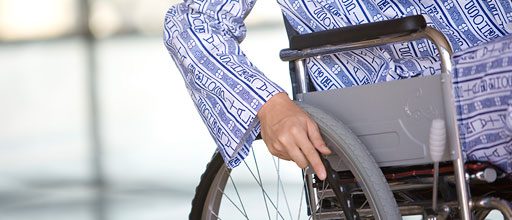
World's biggest trial of gaming technology starts to help patients
Researchers have started the world’s biggest trial looking at whether computer games, iPad apps and interactive games such as the Wii can help tens of thousands of Australians recover from falls, strokes and brain injuries.
The trial is a comprehensive, high-quality, National Health and Medical Research Council-funded study that includes 300 patients and a team of health professionals, engineers, designers and consumers across three Australian states. The ultimate aim is to use technology to enhance rehabilitation outcomes without a great increase in costs.
Previous studies have generally been smaller and have looked at the role of only one device.
Study leader and physical activity researcher Professor Cathie Sherrington, from The George Institute for Global Health and the University of Sydney, said: “Given the diversity of rehabilitation patients, we suggest different people will do better with different technologies.”
“Smartphones, tablets and computer games are part of most households these days, and we’re looking to see what modern technology can contribute to rehabilitation techniques that have been established over decades,” said Professor Sherrington.
“We know that more exercise is associated with better outcomes, and technology may provide a way to achieve more exercise without extra staff time as the devices offer feedback and encouragement and can be fun.”
The study uses a variety of commercially available games or equipment such as Wii Fit, Xbox Kinect and pedometers such as Fitbits, and specially designed devices, such as stepping tiles developed at The University of Technology and home exercise iPad apps developed by The George Institute and Flinders University.
The devices enable feedback about performance of simple exercises, such as standing up and stepping - either by the control of the figures in the game by the person’s movement, such as Xbox Kinect, or by simpler feedback on a screen, such as how much weight is on the left leg while standing.
Chief Investigator Dr Annie McCluskey, from The University of Sydney’s Faculty of Health Sciences, will be finding out what patients thought of their experience, and using the information to tweak the programme. “It’s important to understand what it’s like for patients, and whether they enjoy the experience, which in turn makes them more likely to increase their participation rates and so raise their exercise levels.”
Associate Professor Bert Bongers and his team, from the Interactivation Studio at the University of Technology, Sydney, developed a set of interactive stepping tiles to help patients practise balancing and stepping exercises. "We have designed the Stepping Tiles in close collaboration with the therapists and patients. As a result the Tiles successfully inform and motivate the users, and they are in constant use in the hospitals."
Prof Maria Crotty from Flinders University and the Repatriation General Hospital led a team conducting the pilot trial for this larger trial. The pilot trial had 60 participants and showing acceptability of the technology to patients and benefits for balance abilities.
She says: “Patients in our pilot trial enjoyed using the technology and we were pleased that the results showed the benefits of the intervention.”
University of Tasmania Associate Professor Stuart Smith, who introduced the team of researchers to the idea of using technology in rehabilitation, developed a version of the Dance Dance Revolution game popular in video game arcades, which has been successfully used in the homes of older people.
Associate Professor Smith says recognition of the potential for modern technology to improve health treatments is snowballing.
“It’s an area where we believe UTAS is already taking an international lead in developing interactive digital technologies that have a health application, as demonstrated by this trial.”
Researchers are recruiting three groups of participants - older people recovering from falls, middle-aged to older people recovering from stroke, and younger adults recovering from traumatic brain injuries most commonly from motor vehicle accidents.
Three hospitals are taking part – the Rehabilitation units at Bankstown-Lidcombe Hospital, the Brain Injury Rehabilitation Unit at Liverpool Hospital and the Rehabilitation units at Adelaide’s Repatriation General Hospital.
Researchers are from The George Institute, The University of Sydney, Flinders University, the University of Tasmania, the University of Technology Sydney as well as from the three Hospitals involved.


